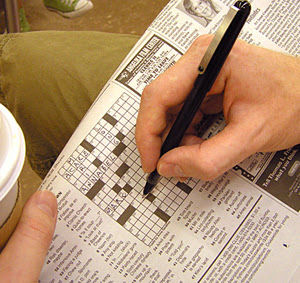Monday, March 9, 2015
6 Step How to Increase Your Memory

There are 6 ways you can help us increase the ability to remember. Hopefully the following therapies can help.
1. Wake up and smell the rosemary.
In a study of 2003, the psychologists asked 144 volunteers to conduct a series of trials of long-term memory, working memory means, and test the reaction and attention. Some people do the test in an odor-free room, some in the room with the smell of rosemary essential oil, and the rest worked with husband smells of lavender.

Well, apparently its good lavender to repel mosquitoes. But side effects can make us prefer to sleep.
2. Food Boost Your Memory
To keep the memories remain young despite the aging brain, researchers suggest that eating foods rich in antioxidants like blueberries, apples, bananas, dark green vegetables, onions, and carrots.

Secondly, most of the brain is made of healthy fats, including the most important are the omega-3. So that the brain can repair itself and become neurons are connected properly, we must provide appropriate food for the brain. Well, omega-3 found in many species of fish and nuts.
3. Chewing gum
Research conducted in 2002 in England found that chewing gum providing better results in long-term memory test and short-term than those who did not chew anything.

The scientists suspect, the act of chewing gum will produce saliva, which increases heart rate, or it affects the functioning of the brain region called the hippocampus that causes the body to release insulin in preparation for the metabolism of food.
4. Brain Game
A program called Lumosity, developed with the help of neuroscientists and cognitive psychologists from Stanford University and the University of California at San Francisco, is specifically designed for parents who want to improve memory, concentration, waking, and even their mood.

5. Sleep.
In a study on lab scale using rats, while rats slept, two areas in the brain - the hippocampus and medial prefrontal cortex, an area associated with memory retrieval of the past (either in human or rat) - rotating display events throughout the day. This process is believed essential to consolidate and tidy up the files of new memories are formed.

6. Walk
Research shows that the memory center in the brain called the hippocampus shrinks with age. But research in 2011 to give good news: people grow older adults who regularly walk to maintain the volume of the hippocampus.

The study, led by Arthur Kramer of the University of Illinois Champaign-Urbana that involved 60 adults aged 55 to 80 years. They did walk three times a week each for 40 minutes.
Enough activity to increase their heart rate. Other participants are the same number of muscle toning exercises weight training, yoga, and stretching, the same intensity.
After a year of tightening, the anterior hippocampus of participants lost a little over 1 percent of its volume, on average. In contrast, aerobic exercise a year makes about 2 percent increase in volume of the anterior hippocampus, reversing the natural aging hippocampus for about two years.
Scientists believe that it is caused by exercise-induced mild stress that triggers the production of growth factors in the brain. Possibly also due to greater blood flow to the brain so that more nutrients and oxygen are produced.
Source : http://giant41.blogspot.com/
Subscribe to:
Post Comments (Atom)


No comments:
Post a Comment